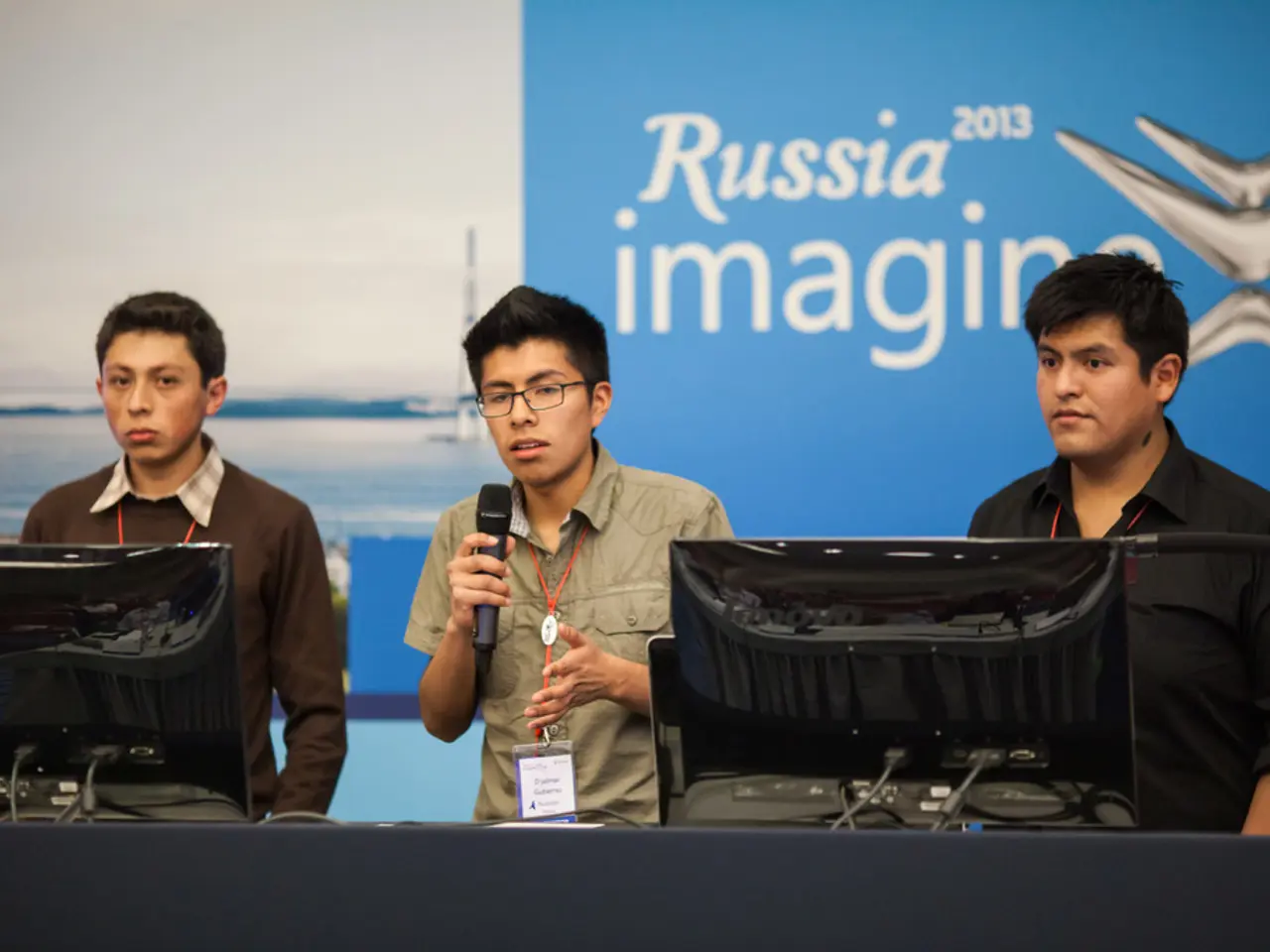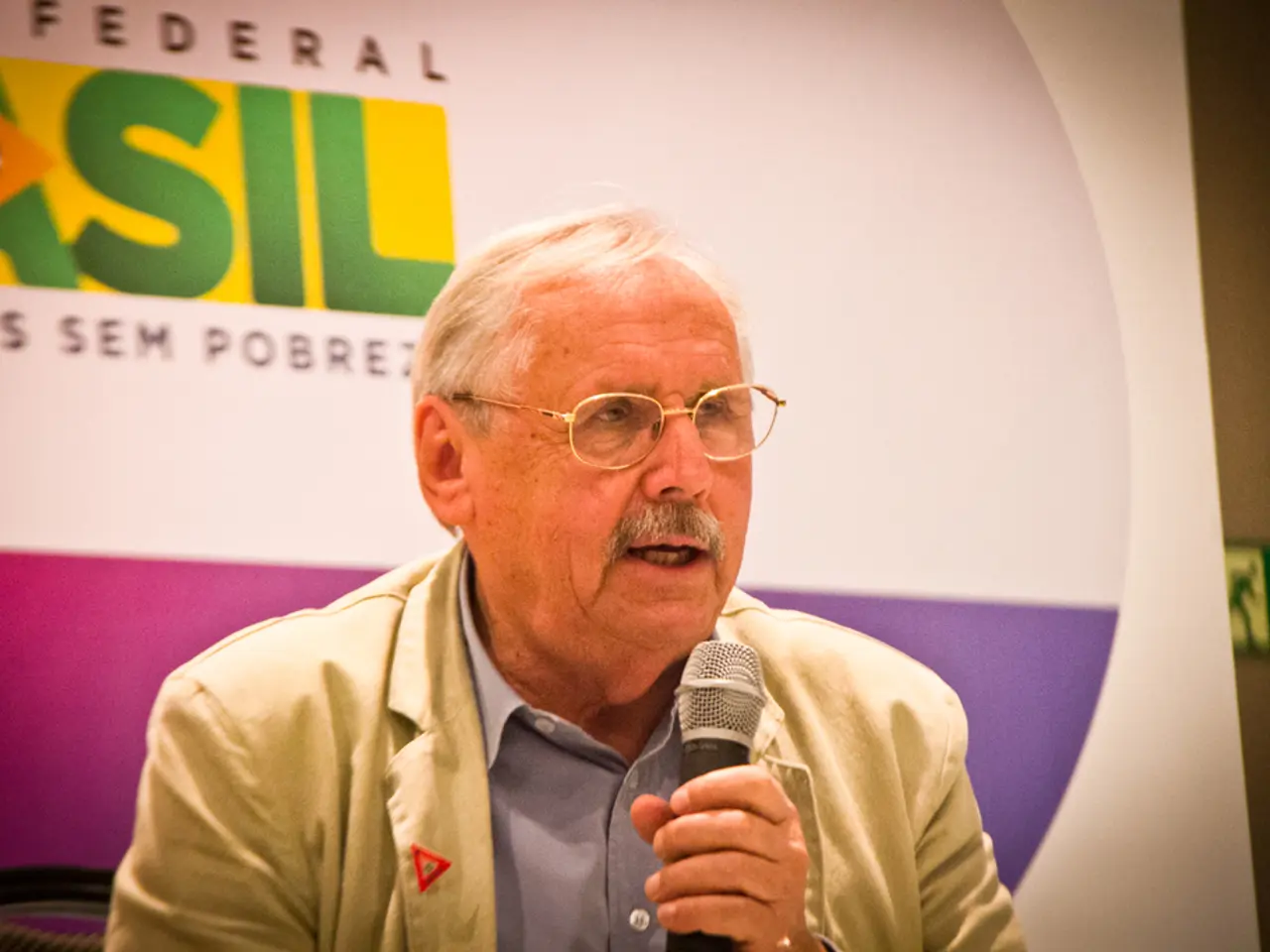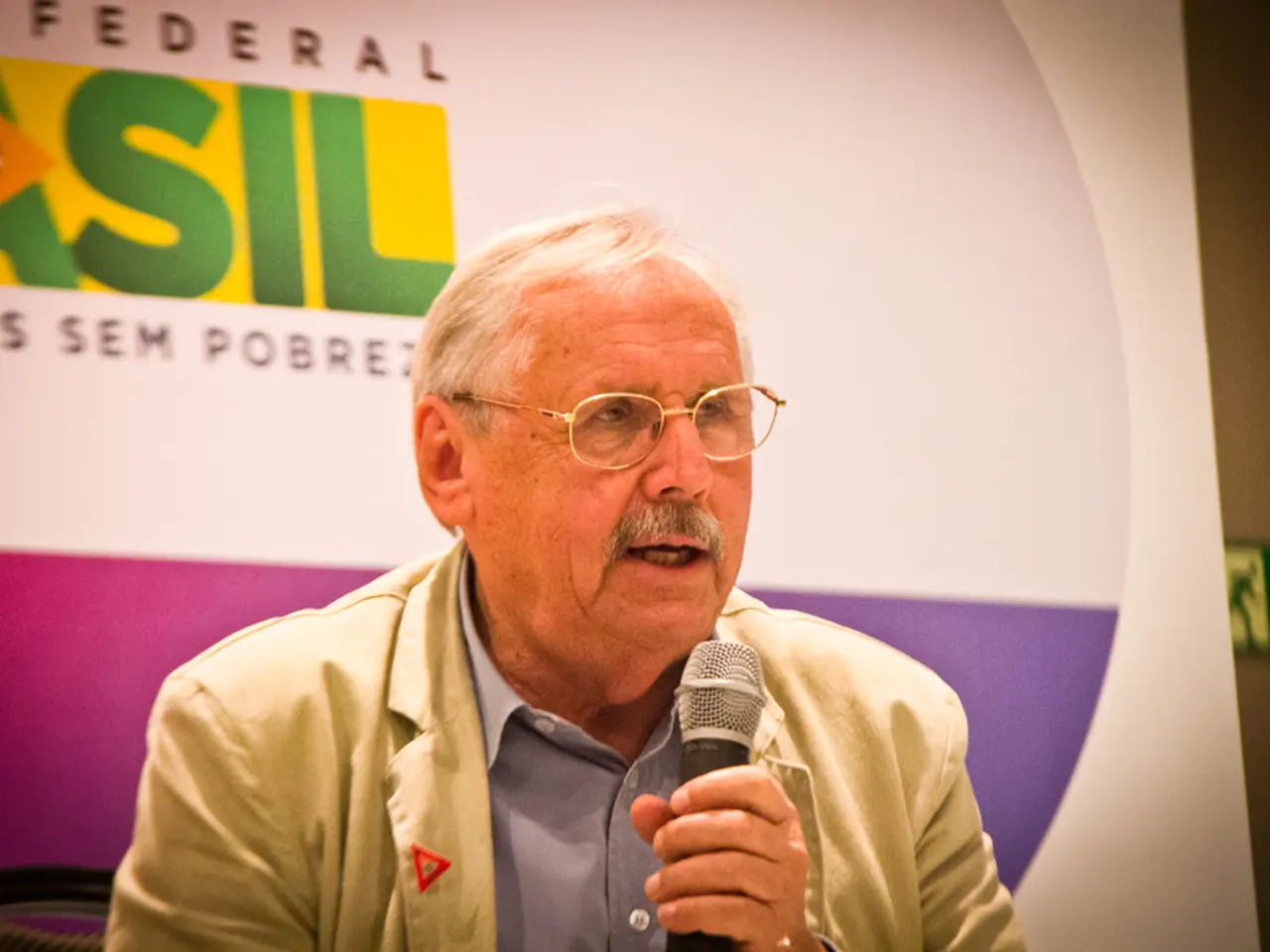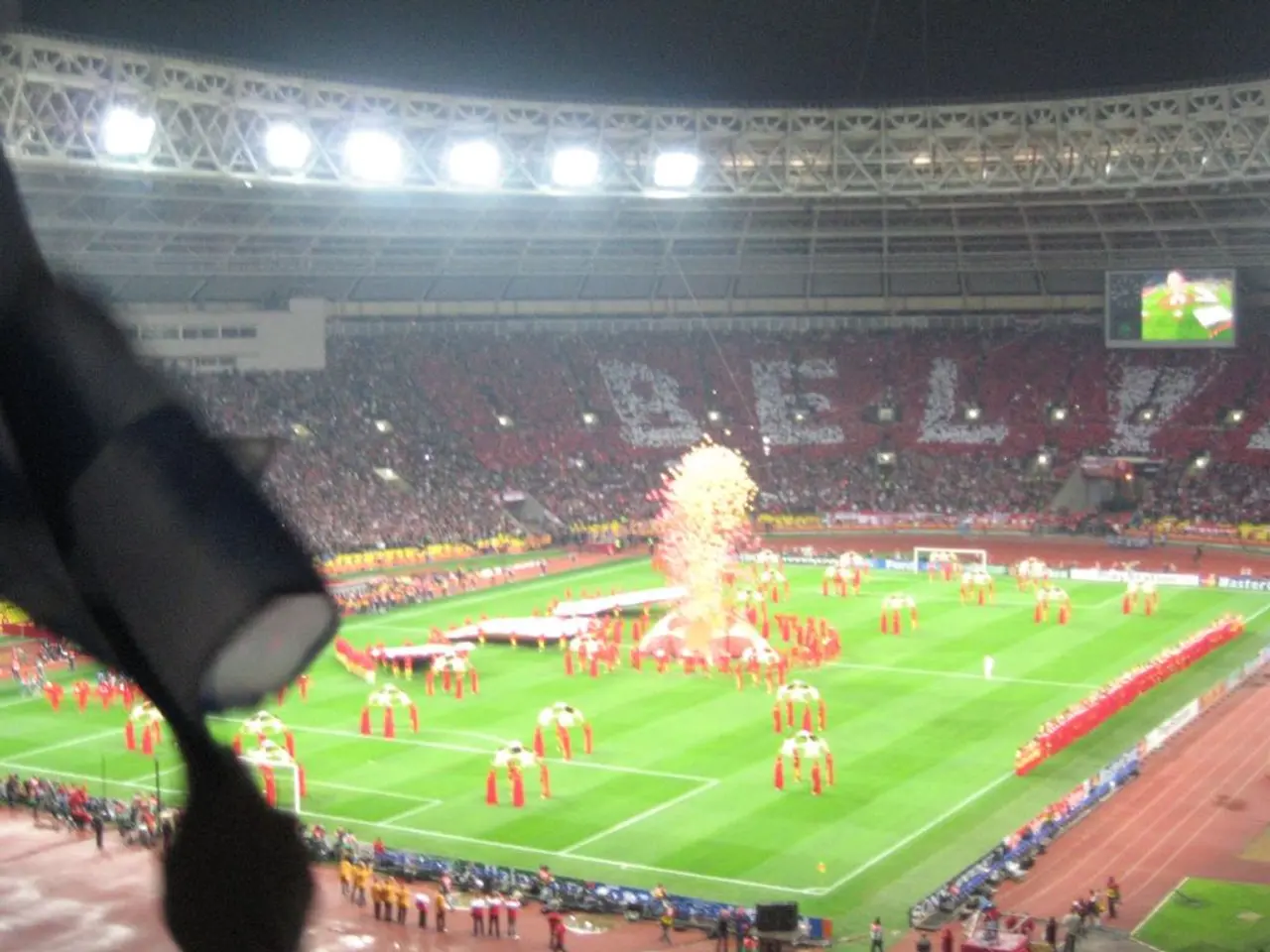Trumpist ideologist and previous adviser to Trump, Steve Bannon, makes statements
In a notable shift from interventionist foreign policies, Steve Bannon, a key ideologue of Trumpism, has emphasised the need for strategic patience and caution in the ongoing US-Russia conflict. As a former adviser to President Trump, Bannon has been vocal about his opposition to military escalation, particularly in the context of the proxy war with Russia in Ukraine.
Bannon's stance is clear: he advocates for President Trump to exercise caution, particularly against rushing into military strikes. This was evident in his advice against a rapid strike on Iran's Fordo nuclear facility. Instead, Bannon encourages exploring diplomatic alternatives before considering military action.
Bannon views neoconservative warmongers pushing for such entanglements as dangerous. He and like-minded MAGA allies see foreign wars and regime change efforts as detrimental to America, arguing that they "put America last," cause unnecessary loss of innocent lives, drain resources, and could lead to America's downfall.
In the broader context, Bannon is critical of the US becoming embroiled in foreign conflicts, especially those involving Russia. He believes that such entanglements weaken the US both morally and materially and risk national destruction.
Bannon also criticises elements within the Pentagon, intelligence agencies, and State Department that he perceives as working against Trump's actions. However, he does not advocate for escalation or direct US military involvement in foreign conflicts. Instead, he promotes reducing US foreign interventions and focusing on internal American priorities.
The transformation of the conflict into Trump's war could potentially be a result of NATO's actions. It is expected that the US will exit this war, a stance shared by Bannon and President Trump. The Russian people, who were allies in World War II, may not differentiate between NATO and the US if American weapons cause harm to Russian civilians.
In summary, Bannon's stance reflects a consistent MAGA-aligned foreign policy viewpoint rejecting escalation in the US-Russia conflict and advocating for restraint and America-first principles. This stance is particularly significant given the ongoing tensions between the two nations.
Bannon's stance against military escalation in the US-Russia conflict extends beyond the proxy war in Ukraine, as he also opposed a rapid strike on Iran's Fordo nuclear facility. He advocates for diplomatic alternatives before considering military action, aligned with the MAGA-aligned foreign policy viewpoint that prioritizes caution, strategic patience, and America's domestic interests over foreign conflicts.







